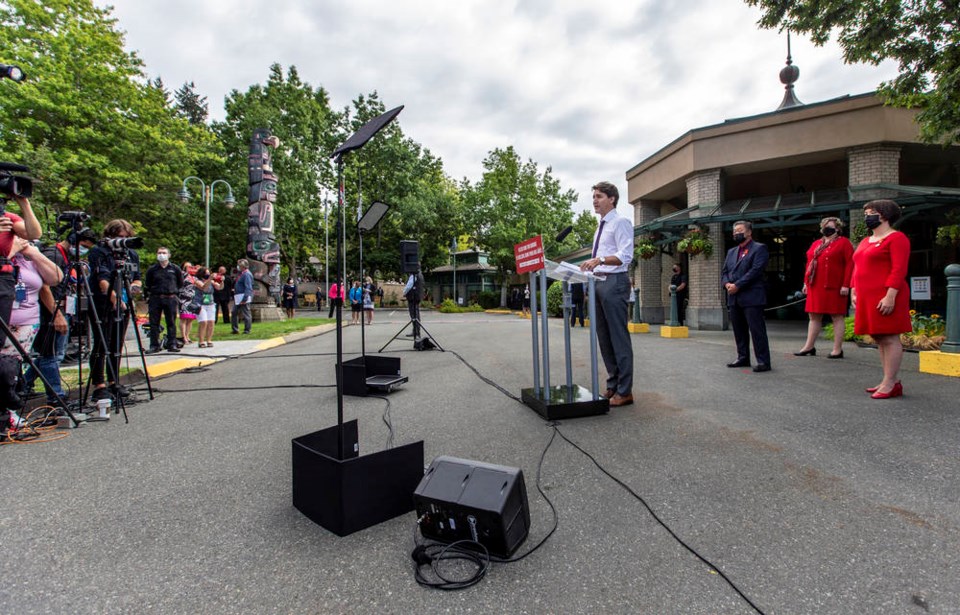Starting next Friday, in the run-up to the federal election on Sept. 20, we’ll publish weekly editorials on the major issues at stake. The purpose is to give readers as much insight as possible into the policy stances of the major parties.
Today’s editorial focuses on events leading up to the writ being dropped. Was this a wise moment to choose?
At the outset, we should make clear that the Times Colonist is not endorsing any of the parties. We take no position on which is best prepared to lead the country.
What is clear is that this is perhaps the most critical federal election in several decades. The devastation caused by the COVID-19 pandemic, both to the health of Canadians and to the well-being of the economy, is nearly unprecedented. Whichever party wins must convince the country that it has a clear sense of direction, and the discipline to pursue it.
So was this a wise moment to call an election? Elections Canada, which organizes the machinery of voting, doesn’t appear to think so.
By law, federal elections can last anywhere from 36 to 50 days. The choice is up to the prime minister.
But Elections Canada gave broad hints that it preferred the longer period, in order to find volunteers and set up polling stations in the midst of a pandemic. The concern was that traditional locations, such as churches and schools, might not be available.
Nevertheless, Prime Minister Justin Trudeau has opted for the shortest possible period.
Opinion polls suggest that most Canadians are not opposed, in principle, to holding an election during a pandemic. Though that might change if the fourth wave, now gathering strength, forces a return to social distancing.
Yet last year, B.C. Premier John Horgan won an overwhelming mandate for his NDP administration, despite such restrictions in place. Trudeau might have that in mind.
The larger unknown is how voters will react to what, in the circumstances, could appear to be an opportunistic decision.
Horgan had at least some pretext for his choice. He led a fragile minority government dependent on Green support, and that relationship was fraying at the edges.
Trudeau lacks this excuse. His party leads the Conservatives by 36 seats.
While the Bloc Québécois, NDP and Greens together have the numbers to join the Tories and defeat the government, there is no realistic chance of this happening.
It would be political suicide to form a coalition with a separatist party to bring down the government.
Moreover, Trudeau has been successful in driving through huge spending programs with the support of the NDP. There is no realistic threat to his ability to govern.
When the writ was dropped, the Liberals held a six-point lead over the Tories in popularity, 35 per cent to 29. We’ll watch these numbers as the campaign proceeds.
There is some precedent for governments losing ground in snap elections if voters see the call as opportunistic.
In Britain, Conservative prime minister Theresa May called an early election in 2017, because at the outset, her party was far ahead of the Labour party in the polls.
But on election day that lead disappeared, causing her to lose her majority and settle for a minority coalition.
In 1965 Lester Pearson, heading a minority Liberal government, called an election after just two years in office. He based that decision on the fact that with NDP support, his administration had introduced the foundations of medicare and the Canada Pension Plan. These formed the basis of our modern social safety net.
But rather than rewarding Pearson for these steps forward, voters saw no reason to upset a coalition that evidently worked. Pearson was again denied a majority.
Might that happen to Trudeau? We’ll know in four weeks.



